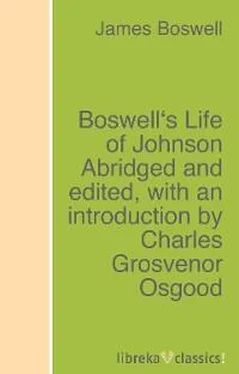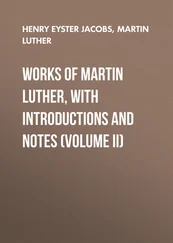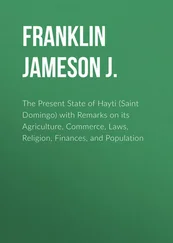James Boswell - Boswell's Life of Johnson Abridged and edited, with an introduction by Charles Grosvenor Osgood
Здесь есть возможность читать онлайн «James Boswell - Boswell's Life of Johnson Abridged and edited, with an introduction by Charles Grosvenor Osgood» — ознакомительный отрывок электронной книги совершенно бесплатно, а после прочтения отрывка купить полную версию. В некоторых случаях можно слушать аудио, скачать через торрент в формате fb2 и присутствует краткое содержание. Жанр: unrecognised, на английском языке. Описание произведения, (предисловие) а так же отзывы посетителей доступны на портале библиотеки ЛибКат.
- Название:Boswell's Life of Johnson Abridged and edited, with an introduction by Charles Grosvenor Osgood
- Автор:
- Жанр:
- Год:неизвестен
- ISBN:нет данных
- Рейтинг книги:4 / 5. Голосов: 1
-
Избранное:Добавить в избранное
- Отзывы:
-
Ваша оценка:
- 80
- 1
- 2
- 3
- 4
- 5
Boswell's Life of Johnson Abridged and edited, with an introduction by Charles Grosvenor Osgood: краткое содержание, описание и аннотация
Предлагаем к чтению аннотацию, описание, краткое содержание или предисловие (зависит от того, что написал сам автор книги «Boswell's Life of Johnson Abridged and edited, with an introduction by Charles Grosvenor Osgood»). Если вы не нашли необходимую информацию о книге — напишите в комментариях, мы постараемся отыскать её.
Boswell's Life of Johnson Abridged and edited, with an introduction by Charles Grosvenor Osgood — читать онлайн ознакомительный отрывок
Ниже представлен текст книги, разбитый по страницам. Система сохранения места последней прочитанной страницы, позволяет с удобством читать онлайн бесплатно книгу «Boswell's Life of Johnson Abridged and edited, with an introduction by Charles Grosvenor Osgood», без необходимости каждый раз заново искать на чём Вы остановились. Поставьте закладку, и сможете в любой момент перейти на страницу, на которой закончили чтение.
Интервал:
Закладка:
He advised me, when abroad, to be as much as I could with the Professors in the Universities, and with the Clergy; for from their conversation I might expect the best accounts of every thing in whatever country I should be, with the additional advantage of keeping my learning alive.
It will be observed, that when giving me advice as to my travels, Dr. Johnson did not dwell upon cities, and palaces, and pictures, and shows, and Arcadian scenes. He was of Lord Essex's opinion, who advises his kinsman Roger Earl of Rutland, 'rather to go an hundred miles to speak with one wise man, than five miles to see a fair town.'
I described to him an impudent fellow from Scotland, who affected to be a savage, and railed at all established systems. JOHNSON. 'There is nothing surprizing in this, Sir. He wants to make himself conspicuous. He would tumble in a hogstye, as long as you looked at him and called to him to come out. But let him alone, never mind him, and he'll soon give it over.'
I added, that the same person maintained that there was no distinction between virtue and vice. JOHNSON. 'Why, Sir, if the fellow does not think as he speaks, he is lying; and I see not what honour he can propose to himself from having the character of a lyar. But if he does really think that there is no distinction between virtue and vice, why, Sir, when he leaves our houses let us count our spoons.'
He recommended to me to keep a journal of my life, full and unreserved. He said it would be a very good exercise, and would yield me great satisfaction when the particulars were faded from my remembrance. I was uncommonly fortunate in having had a previous coincidence of opinion with him upon this subject, for I had kept such a journal for some time; and it was no small pleasure to me to have this to tell him, and to receive his approbation. He counselled me to keep it private, and said I might surely have a friend who would burn it in case of my death. From this habit I have been enabled to give the world so many anecdotes, which would otherwise have been lost to posterity. I mentioned that I was afraid I put into my journal too many little incidents. JOHNSON. 'There is nothing, Sir, too little for so little a creature as man. It is by studying little things that we attain the great art of having as little misery and as much happiness as possible.'
Next morning Mr. Dempster happened to call on me, and was so much struck even with the imperfect account which I gave him of Dr. Johnson's conversation, that to his honour be it recorded, when I complained that drinking port and sitting up late with him affected my nerves for some time after, he said, 'One had better be palsied at eighteen than not keep company with such a man.'
On Tuesday, July 18, I found tall Sir Thomas Robinson sitting with Johnson. Sir Thomas said, that the king of Prussia valued himself upon three things;—upon being a hero, a musician, and an authour. JOHNSON. 'Pretty well, Sir, for one man. As to his being an authour, I have not looked at his poetry; but his prose is poor stuff. He writes just as you might suppose Voltaire's footboy to do, who has been his amanuensis. He has such parts as the valet might have, and about as much of the colouring of the style as might be got by transcribing his works.' When I was at Ferney, I repeated this to Voltaire, in order to reconcile him somewhat to Johnson, whom he, in affecting the English mode of expression, had previously characterised as 'a superstitious dog;' but after hearing such a criticism on Frederick the Great, with whom he was then on bad terms, he exclaimed, 'An honest fellow!'
Mr. Levet this day shewed me Dr. Johnson's library, which was contained in two garrets over his Chambers, where Lintot, son of the celebrated bookseller of that name, had formerly his warehouse. I found a number of good books, but very dusty and in great confusion. The floor was strewed with manuscript leaves, in Johnson's own handwriting, which I beheld with a degree of veneration, supposing they perhaps might contain portions of The Rambler or of Rasselas. I observed an apparatus for chymical experiments, of which Johnson was all his life very fond. The place seemed to be very favourable for retirement and meditation. Johnson told me, that he went up thither without mentioning it to his servant, when he wanted to study, secure from interruption; for he would not allow his servant to say he was not at home when he really was. 'A servant's strict regard for truth, (said he) must be weakened by such a practice. A philosopher may know that it is merely a form of denial; but few servants are such nice distinguishers. If I accustom a servant to tell a lie for ME, have I not reason to apprehend that he will tell many lies for HIMSELF.'
Mr. Temple, now vicar of St. Gluvias, Cornwall, who had been my intimate friend for many years, had at this time chambers in Farrar's-buildings, at the bottom of Inner Temple-lane, which he kindly lent me upon my quitting my lodgings, he being to return to Trinity Hall, Cambridge. I found them particularly convenient for me, as they were so near Dr. Johnson's.
On Wednesday, July 20, Dr. Johnson, Mr. Dempster, and my uncle Dr. Boswell, who happened to be now in London, supped with me at these Chambers. JOHNSON. 'Pity is not natural to man. Children are always cruel. Savages are always cruel. Pity is acquired and improved by the cultivation of reason. We may have uneasy sensations from seeing a creature in distress, without pity; for we have not pity unless we wish to relieve them. When I am on my way to dine with a friend, and finding it late, have bid the coachman make haste, if I happen to attend when he whips his horses, I may feel unpleasantly that the animals are put to pain, but I do not wish him to desist. No, Sir, I wish him to drive on.'
Rousseau's treatise on the inequality of mankind was at this time a fashionable topick. It gave rise to an observation by Mr. Dempster, that the advantages of fortune and rank were nothing to a wise man, who ought to value only merit. JOHNSON. 'If man were a savage, living in the woods by himself, this might be true; but in civilized society we all depend upon each other, and our happiness is very much owing to the good opinion of mankind. Now, Sir, in civilized society, external advantages make us more respected. A man with a good coat upon his back meets with a better reception than he who has a bad one. Sir, you may analyse this, and say what is there in it? But that will avail you nothing, for it is a part of a general system. Pound St. Paul's Church into atoms, and consider any single atom; it is, to be sure, good for nothing: but, put all these atoms together, and you have St. Paul's Church. So it is with human felicity, which is made up of many ingredients, each of which may be shewn to be very insignificant. In civilized society, personal merit will not serve you so much as money will. Sir, you may make the experiment. Go into the street, and give one man a lecture on morality, and another a shilling, and see which will respect you most. If you wish only to support nature, Sir William Petty fixes your allowance at three pounds a year; but as times are much altered, let us call it six pounds. This sum will fill your belly, shelter you from the weather, and even get you a strong lasting coat, supposing it to be made of good bull's hide. Now, Sir, all beyond this is artificial, and is desired in order to obtain a greater degree of respect from our fellow-creatures. And, Sir, if six hundred pounds a year procure a man more consequence, and, of course, more happiness than six pounds a year, the same proportion will hold as to six thousand, and so on as far as opulence can be carried. Perhaps he who has a large fortune may not be so happy as he who has a small one; but that must proceed from other causes than from his having the large fortune: for, coeteris paribus, he who is rich in a civilized society, must be happier than he who is poor; as riches, if properly used, (and it is a man's own fault if they are not,) must be productive of the highest advantages. Money, to be sure, of itself is of no use; for its only use is to part with it. Rousseau, and all those who deal in paradoxes, are led away by a childish desire of novelty. When I was a boy, I used always to choose the wrong side of a debate, because most ingenious things, that is to say, most new things, could be said upon it. Sir, there is nothing for which you may not muster up more plausible arguments, than those which are urged against wealth and other external advantages. Why, now, there is stealing; why should it be thought a crime? When we consider by what unjust methods property has been often acquired, and that what was unjustly got it must be unjust to keep, where is the harm in one man's taking the property of another from him? Besides, Sir, when we consider the bad use that many people make of their property, and how much better use the thief may make of it, it may be defended as a very allowable practice. Yet, Sir, the experience of mankind has discovered stealing to be so very bad a thing, that they make no scruple to hang a man for it. When I was running about this town a very poor fellow, I was a great arguer for the advantages of poverty; but I was, at the same time, very sorry to be poor. Sir, all the arguments which are brought to represent poverty as no evil, shew it to be evidently a great evil. You never find people labouring to convince you that you may live very happily upon a plentiful fortune.—So you hear people talking how miserable a King must be; and yet they all wish to be in his place.'
Читать дальшеИнтервал:
Закладка:
Похожие книги на «Boswell's Life of Johnson Abridged and edited, with an introduction by Charles Grosvenor Osgood»
Представляем Вашему вниманию похожие книги на «Boswell's Life of Johnson Abridged and edited, with an introduction by Charles Grosvenor Osgood» списком для выбора. Мы отобрали схожую по названию и смыслу литературу в надежде предоставить читателям больше вариантов отыскать новые, интересные, ещё непрочитанные произведения.
Обсуждение, отзывы о книге «Boswell's Life of Johnson Abridged and edited, with an introduction by Charles Grosvenor Osgood» и просто собственные мнения читателей. Оставьте ваши комментарии, напишите, что Вы думаете о произведении, его смысле или главных героях. Укажите что конкретно понравилось, а что нет, и почему Вы так считаете.












